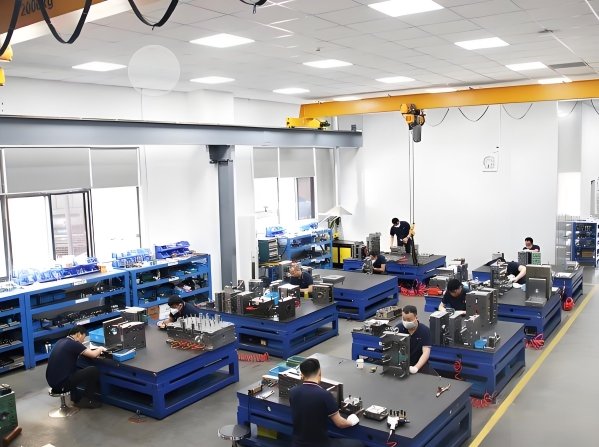
Modern healthcare relies on precision. Medical injection molding creates essential devices. Mold makers ensure accuracy and efficiency. This technology improves patient care worldwide.
1. Why Medical Injection Molding Matters
1.1 High Precision Manufacturing
- Medical devices require extreme accuracy.
- Injection molding ensures consistent quality.
- Mold makers create detailed, high-precision molds.
1.2 Cost-Effective Production
- Mass production reduces per-unit costs.
- Faster manufacturing meets demand.
- Efficient mold makers lower expenses.
1.3 Biocompatible Materials
- Safe for human use.
- Withstand sterilization.
- Durable and long-lasting.
2. Common Applications in Medical Devices
2.1 Syringes and IV Components
- Mass-produced for hospitals worldwide.
- Disposable for infection control.
- Made with sterile, medical-grade plastics.
2.2 Surgical Instruments
- Scalpels, clamps, and retractors.
- Durable, lightweight, and reusable.
- Withstand heat and chemical sterilization.
2.3 Implantable Medical Devices
- Pacemaker casings.
- Prosthetic components.
- Biocompatible and long-lasting.
3. Diagnostics and Testing Equipment
3.1 Laboratory Consumables
- Petri dishes and test tubes.
- Blood collection vials.
- High precision ensures accurate results.
3.2 Drug Delivery Systems
- Inhalers and insulin pens.
- Designed for precise dosage control.
- Safe and easy for patients to use.
3.3 Microfluidic Devices
- Used in disease detection.
- Process small liquid samples.
- Require ultra-precise molding.
4. Advanced Applications in Modern Healthcare
4.1 Wearable Medical Devices
- Glucose monitors and heart rate sensors.
- Lightweight and comfortable for patients.
- Made with flexible, biocompatible materials.
4.2 Artificial Organs and Prosthetics
- Custom-fit for patients.
- Injection-molded parts improve functionality.
- Used in bionic limbs and artificial joints.
4.3 Smart Medical Devices
- Internet-connected healthcare tools.
- Improve remote patient monitoring.
- Ensure real-time data collection.
5. Role of Mold Makers in Medical Manufacturing
5.1 Precision Mold Design
- Essential for high-quality products.
- Reduces defects and waste.
- Ensures long mold life.
5.2 Cleanroom Production
- Prevents contamination.
- Maintains sterile conditions.
- Ensures regulatory compliance.
5.3 Material Selection Expertise
- Knowledge of medical-grade plastics.
- Helps choose biocompatible materials.
- Ensures durability and safety.
6. Regulatory Compliance and Safety
6.1 Meeting FDA and ISO Standards
- Strict guidelines ensure patient safety.
- All products undergo rigorous testing.
- Compliance is critical in medical injection molding.
6.2 Sterilization and Cleanliness
- Autoclave, radiation, and chemical sterilization.
- Plastics must withstand high temperatures.
- Prevents bacterial contamination.
6.3 Quality Control Measures
- Automated inspection detects defects.
- AI ensures precision and consistency.
- Reduces human error in manufacturing.
7. Future of Medical Injection Molding
7.1 3D Printing and Rapid Prototyping
- Speeds up product development.
- Helps test designs before mass production.
- Reduces time-to-market for new devices.
7.2 Sustainable Medical Plastics
- Eco-friendly materials emerging.
- Reducing plastic waste in healthcare.
- Improving biodegradable alternatives.
7.3 AI in Medical Manufacturing
- Enhances quality control.
- Predicts mold wear and maintenance.
- Optimizes production efficiency.
Medical injection molding plays a vital role in healthcare. Mold makers create precise, high-quality medical devices. The technology continues to advance, improving patient care worldwide.
